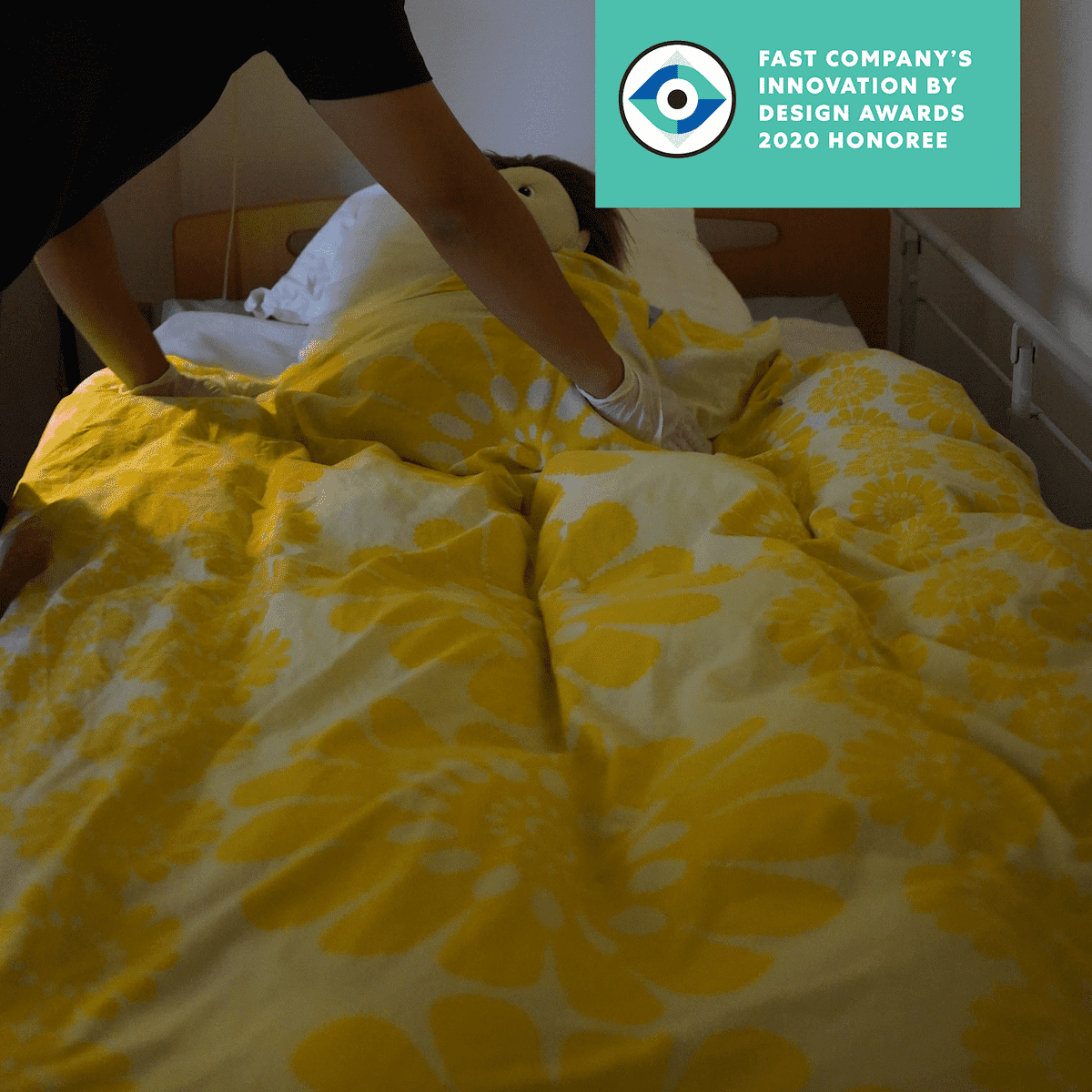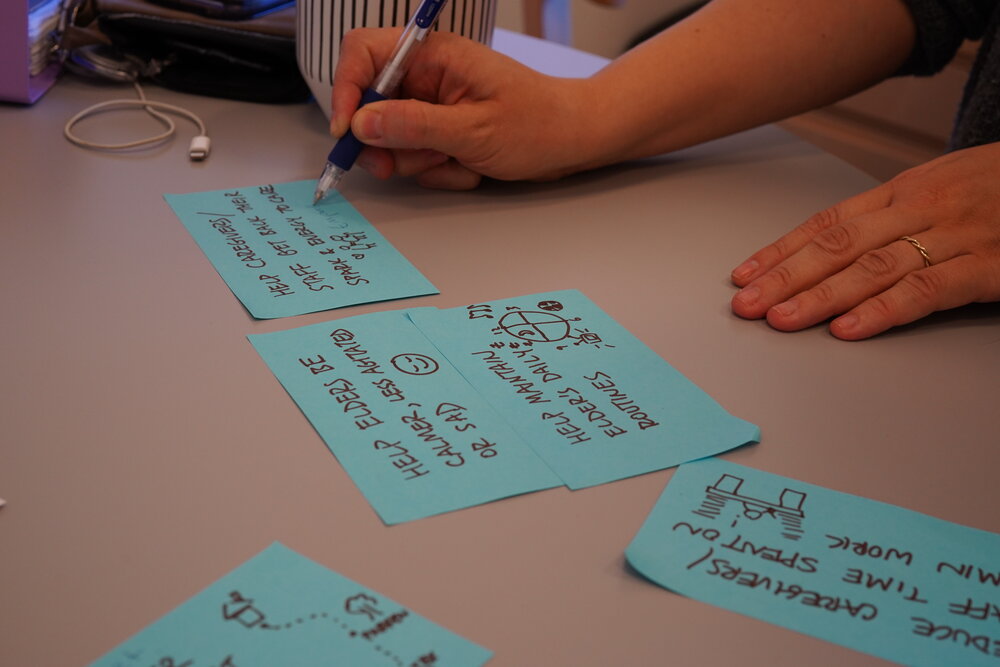Stille
Emotional care for institutional caregivers of the elderly

A Danish caregiver preparing the bed of an elder
Stille is a physical-digital service that aims to help institutional caregivers maintain their empathy and their energy to care, by supporting caregivers’ emotional well-being. It was my Final Project at the Copenhagen Institute of Interaction Design (IDP 2019), conducted from Sept to Dec ’19. Research was done in two phases, which yielded five design principles used to design the solution:
- Address the Stress: create a break
- Focus on the emotional, not the physical
- Reinforce social bonds & support amongst co-workers
- Tactile interactions to calm & soothe
- Non-written reflection mechanisms
It was awarded the Student Runner-Up in Core 77 Design Awards in 2020, and was an Honorable Mention in Fast Company’s Innovation By Design Awards 2020.
This documentation is split between different pages:
- Background (Context & Brief, on this page)
- Overview of Concept
- Design Principles
- Process
Context
Helping an older adult find a caregiver, delineating the caregiver’s tasks, monitoring the caregiver’s work with the older adult, and ensuring the caregiver’s own well-being…can be…among the most important interventions to ensure the well- being and safety of frail older adults.
– Dr. Louise Aronson, “Elderhood”, 2019
Aging is a demographic trend affecting many countries in Asia, Europe and America.
In rapidly aging societies like Denmark, the demands on institutional caregivers of elders will increase, worsening the stress of an already-demanding job in a talent-crunched profession. This is reflected in the high annual turnover rates for professional caregivers (~25% per year at a nursing home in Denmark).
“Slowly their empathy kinda drains: (the carers get) hardened…(This is) a huge problem…(elderly) people can get very angry when they’re not met with empathy & understanding…the lack of understanding can actually accelerate ‘bad behaviour’ (in elderly people).”
– Rachel, Activity Center Manager
Caregiver burnout also causes a loss of empathy, which in turn creates downstream problems of “bad elderly behaviour”.
Conversely, a Singaporean medical professional shared with me that
- Caregiver empathy can alleviate “bad elderly behaviour”, which is sometimes managed by sedation. An anecdote shared with me was about an elderly man with dementia, who initially needed to be sedated due to his bad behaviour; after his son hired a new caregiver who was much more empathic, the bad behaviour disappeared, as the new caregiver took the time to listen to him, asked him to repeat his stories, etc.
- There are caregivers of the elderly who work in the field for 5, 10, 20 years with a continued spark and no burnout.
This caused me to think about the possibility of the opportunity area, which became my brief.
Brief
What if we can help institutional carers of the elderly in Copenhagen to maintain their empathy & energy to care for 5, 10, 20 years?

A nursing home manager writing the word “empathy” on a sorting card.
This was my starting point for the project, which was selected with the help of a nursing home manager through a sorting-cards prioritization (pictured).
Special thanks to:
- Arunima Singh (Thesis advisor)
- John Lynch
- Adrian Westaway
- Clara Subirats
- Elena Gianni
- Tobias Toft
- Finn Müller
- Josh Walton
- Blair Johnsrude
- CIID staff, especially Simona, Alie, Mette, Moises, Martin
- IDP 2019 (love y’all)

This work is licensed under a Creative Commons Attribution-NonCommercial-NoDerivatives 4.0 International License.